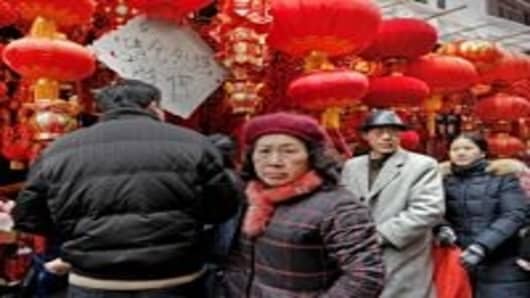I was zooming along Beijing’s fifth ring road in a Ferrari when the car’s driver and owner, Mr. Chen, a Chinese billionaire, began discussing his shopping list with me. "I can’t buy new houses and cars easily because of restrictions, and I don't trust the stock market," he said. Mr. Chen said new rules limiting the number of homes one could buy and the number of license plates issued would affect his shopping and investing habits.
For one, Mr. Chen plans to go bigger on his home. He is considering buying homes in Hong Kong or America but is hesitant because he thinks the yuan will appreciate against the dollar. He is even considering buying a private airplane and yacht like his friends, because he has no other place to park his money. Sales by private aircraft makers General Dynamics and Boeing are soaring in China. General Dynamics has sold 58 planes there in recent years.
Over the last year, the Chinese government has implemented regulations to limit traffic congestion and slow housing speculation in order to ensure a soft landing in the housing market. These rules have changed how consumers are shopping, and brand managers need to react or else they might miss out on new trends emerging.
At the high end, China’s nearly 1 million US dollar millionaires and 100 billionaires like Mr. Chen are buying one property instead of multiple properties. Restrictions have caused home prices in the medium to mid-upper ranges to stabilize or even drop while standalone villas and homes above $15 million, a category that did not even exist five years ago, are skyrocketing. One developer in Beijing is even touting $50,000 a square meter rates at a new development.
A similar trend is happening in the auto sector. The China Automotive Technology & Research Center says overall auto sales might drop 10 percent this year after an 8.1 percent gain the first quarter because stimulus measures implemented in 2008 to encourage sales are being scrapped and authorities are limiting the number of license plates issued to ease traffic and pollution. Only 21 percent of license plate applications in Beijing in January were successful.
Those who secure license plates are going up-market, as they are in housing. Ferrari’s Chinese sales jumped 50 percent to 300 cars last year and will have similar growth rates in 2011. Porsche anticipates 35 percent growth there this year. Helmut Broeker, Porsche’s head of China, predicts China will overtake America as its largest market by 2014. Mercedes saw a 47 percent year-on-year increase in April to 16,536 units sold in the month.
In the mid-tier market, restrictions are causing shifts in how people spend. Instead of buying a second home, mid-income Chinese are spending more on home renovation and furniture. My firm interviewed 1,000 consumers in eight cities in the last six months to understand how real estate restrictions will change spending habits. The majority responded restrictions would shift budgets from buying new homes to spending more per item on home decoration products. Furniture, bedding, and electronics products were categories consumers expected to spend more on.
For autos, mid-tier consumers are either delaying purchases or looking to buy more expensive cars. However, they cannot afford imported cars that often sell for double the price in America. For instance, a Mercedes S600 that goes for $120,000 in America sells for $350,000 in China because of import duties and because only the most luxurious options are available. Instead of wanting imported cars, people are looking to buy domestically produced cars to escape import duties.
Ten years ago domestically made cars were looked down on because of quality control concerns. That fear is evaporating as auto companies that have localized production like BMW (on its series 3 and 5 lines) and Volkswagen have had sales soar and will continue to do so because of these restrictions. Companies that have not localized production like Jaguar and Toyota’s Lexus line will see market share drop as a result.
Finally, all levels of consumers said they expected to travel abroad more and spend more on hotels and shopping. Chains like Starwood and Marriott that have built up brand recognition in China will benefit as Chinese go abroad more often. Over 50 million Chinese traveled abroad last year and they are staying in chains they know.
Smarter retailers are hiring Mandarin-speaking salespeople to cater to the increase in outbound tourism. Harrods in London announced sales soared 40 percent in the first quarter of this year after they installed bank card terminals that are linked to the Chinese UnionPay system since many Chinese still don’t have Visa and Mastercard branded ATM cards. Before, most Chinese brought cash, which limited the amount they could buy.
Changing styles, tastes, and income levels aren’t the only things that are driving Chinese consumers’ spending habits. When selling to the Chinese, companies would do well to account for the effect of regulations as well, or risk missing big opportunities.
Shaun Rein is the founder and managing director of the China Market Research Group (www.cmrconsulting.com.cn) a strategic market intelligence firm, and is based in Shanghai. Follow him on Twitter at @shaunrein.


